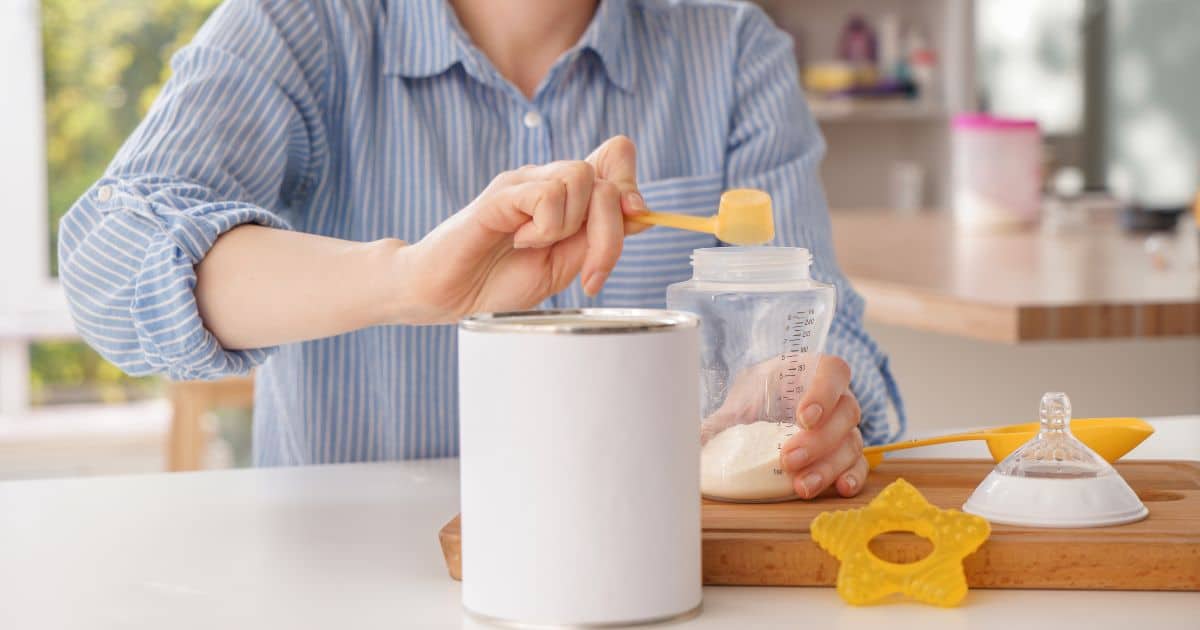
Breast milk is universally recognised for its vital health benefits to newborns, with crucial health benefits. It nourishes the entire body, brain, and all systems to help them develop correctly. In the meantime, many mothers cannot feed their newborns with breast milk due to various health issues. Thus, the best alternative is to switch to baby formula.
High-quality baby formulas are an excellent substitute for breastfeeding because the most high-quality products contain nutrients that are close to what the mother’s milk can provide. For example, the HiPP Dutch from 6 months, 10 months, 12 months, or even from the first days of life can be a healthy asset to babies.
There are many formulas that can be successfully and safely given to little ones. Nonetheless, there appears another issue – How to start bottle feeding? Many parents are alert and want to find out all the ends. Our comprehensive article focuses on this crucial matter.
When Should It Be Started?
There are 2 cases when a bottle should be introduced to the infant.
Case #1 is when you intend to feed the infant only with a bottle. Thus, you need to give it right after birth. The natural instinct will do everything else.
Case #2 is when a mom plans to feed with breast and bottle at the same time. In this case, it’s recommended to introduce the bottle to an infant at least 3 weeks after birth. If you give it soon after birth, the infant may refuse breastfeeding for good, and you will have no chance to implement it.
Why do the problems appear in this case? Firstly, the nipples will not be stimulated to produce milk. Secondly, it’s much easier to suck milk out of a bottle, and the little one may simply choose the easiest way.
How to Bottle-Feed a Baby?
In most cases, babies quickly understand how to suck from the bottle. Yet, there are situations when parents experience definite complications. They should not panic and grow desperate. There are a few smart steps that can solve the issue. Make allowances for them here below:
Prepared the bottle
Be sure you read the instructions about how to prepare a baby formula. After you pour enough powder and make it a mixture, warm it up under hot water for a few minutes. You can also put it for a while into boiled water that is hot (but which isn’t boiling currently). NEVER warm it up via a microwave! It’s dangerous for the health of babies. Don’t add cereal to the formula because it won’t let the baby fall asleep and there may appear swallowing issues.
Test it
You need to shake and swirl the bottle before you give it to your baby. You should check the temperature, as well as be certain there are no leaks. Pour a few drips on your wrist to check how hot the formula is. NEVER give a hot mixture!
Get into the right feeding position
You need to select a convenient pose and relax, as you’ll have to feed the baby for at least 20 minutes. Make a crook with your arm and hold the baby’s head at a 45-degree angle. You can use a pillow to support your hand and thus avoid tiredness.
Do a nipple neck
Check the flow from the bottle. If the baby spits it out, or it runs down the cheek, the flow is too fast. In case the baby struggles to suck the milk, the flow is too slow. In both cases, you need to regulate the tightness of the nipple. If that doesn’t work, you will need a new nipple.
Here are straightforward instructions you can follow. They aren’t difficult to fulfil. You should also find out various reasons why a baby may refuse to take a bottle or what hardships may take place. The common ones are:
- The baby falls asleep
- The baby has a stuffy nose
- You do not give the bottle correctly
- The baby doesn’t want to eat.
They can all be solved. Just make sure you are doing everything correctly, or wait until the baby really wants to eat and does not fall asleep. NEVER give more than your baby requires during the day.
Further reading: Support for going through pregnancy alone.













